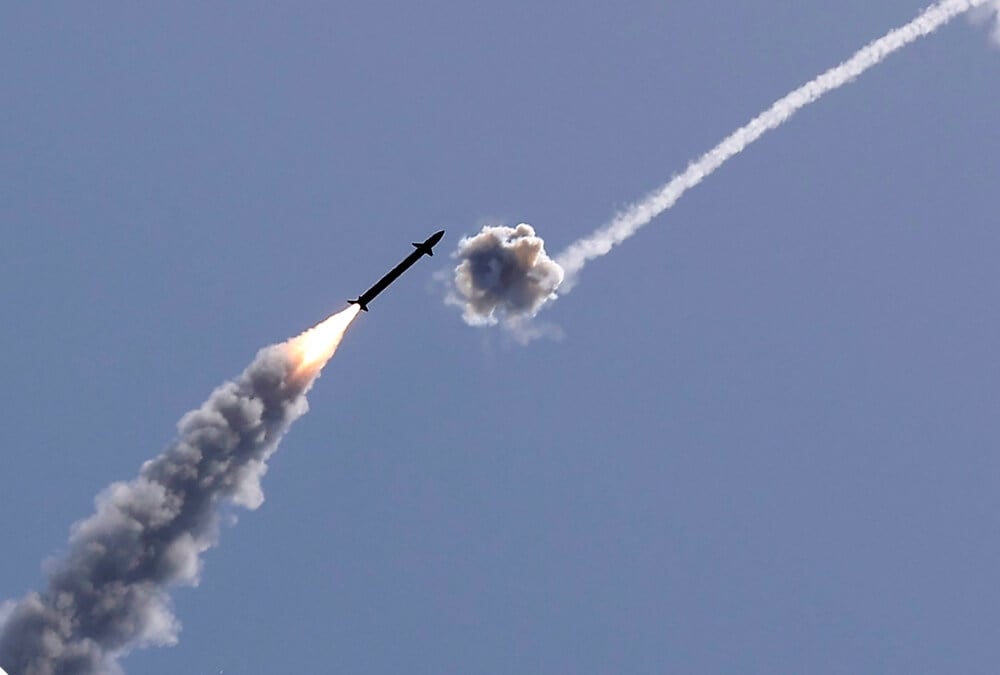That Israel remains a top foreign policy priority of the new US administration is also confirmed by the fact that Prime Minister Benjamin Netanyahu was the first of the world's leaders to be invited to the White House to negotiate the newly introduced tariffs on exports to the US.
Netanyahu was also the first foreign leader to be received by President Donald Trump after his inauguration in January.
The tariffs imposed on Israeli companies are straining the close relations between the two countries, as they threaten all Israeli exports to the US worth more than USD 20 billion.
This is precisely why they should be quickly mitigated, if not completely abolished, as both governments do not want any obstacles in their mutual relations at a time when they already have enough problems that they are trying to solve together.
In addition, Israel and its willingness to negotiate on tariffs will be a positive example for Washington to show other governments around the world that negotiations are possible and effective.
However, the American and Israeli leaders have an unresolved crisis in the Middle East region ahead of them, which will remain a priority in their cooperation once tariffs fade as a problem. Iran remains at the forefront of their shared concerns and actions.
Tehran lacks many options
Immediately before Netanyahu's trip to Washington, Tehran reiterated over the weekend that it did not agree with Trump's proposal for direct talks to resolve the Iranian nuclear programme.
Such negotiations are "meaningless", said the head of Iranian diplomacy, Abbas Araghchi, on Sunday, reiterating the earlier position of Supreme Leader Ali Khamenei that Iran does not want direct talks with Washington.
Tehran maintains this position as a way of pressuring Washington to tone down its rhetoric, which included a direct threat from President Trump - "If they don't make a deal, there will be bombing."
Tehran's options are much more limited than its official, mostly harsh, rhetoric aimed at its domestic audience suggests
However, Tehran's options are much more limited than its official, mostly harsh, rhetoric aimed at its domestic audience suggests. Tehran's willingness, in principle, to discuss limiting its nuclear potential, albeit through mediators, also indicates this. Coinciding with Netanyahu's arrival in Washington, Tehran announced that it expected the US to respond to its proposal for Oman to mediate in the negotiations, which until now has been a channel for diplomatic dialogue.
Offensive approach by the USA and Israel
The US position on Iran, including the negotiating model, will be largely tailored to Israel's views and wishes. Therefore, the talks between Trump and Netanyahu in Washington could lead to a longer-term position on Iran in which the two countries will effectively act as a bloc.
Currently, their joint position on Iran is quite offensive and aimed at further weakening Tehran's militant tentacles in the Middle East region.
The attacks by American forces on the positions of the pro-Iranian Houthis in Yemen since 15 March are not only an expression of the USA's desire to finally eliminate the threat to commercial shipping through the Red Sea after a year and a half but also allied support for Israel in eliminating the security threat emanating from Tehran.
Trump will still have to deal with Netanyahu's desire to intervene militarily against Tehran after the talks in Washington
At the same time, Israel reactivated attacks on Hamas in Gaza, ending a brief period of ceasefire, not only to eliminate the armed threat from Hamas but also as a form of additional pressure on Iran.
Although he himself has been exerting strong pressure on Iran since the beginning of his term in office, Donald Trump will still have to deal with Netanyahu's desire to intervene militarily against Tehran after the talks in Washington.
Respecting the interests of Arab partners
Trump is showing his commitment to Israel's policy of fighting the Iranian threat not only with a strong military operation against the Houthis but also with new arms deliveries to Israel, specifically because of an increase in its defence capabilities against a possible new Iranian attack.
 Before Netanyahu's trip to Washington the USA delivered another THAAD anti-missile defence battery
Before Netanyahu's trip to Washington the USA delivered another THAAD anti-missile defence battery
During the weekend (again, before Netanyahu's trip to Washington), the USA delivered another THAAD anti-missile defence battery. The US delivered the first sophisticated air defence system of this kind last year, during Joe Biden's term in office.
In addition to all the evidence of support for Israel, however, President Trump will be in a position to somewhat contain the military escalation, particularly against Iran, if he wants to secure broader regional support for the unfolding of the Middle East crisis.
Prime Minister Netanyahu favours military escalation because he sees it as a powerful means to bolster his own shaky credibility at home. But in this respect, America must also take into account the interests of its Arab partners in the region.
“While the war continues, the United States will not be able to pursue its coveted goal of brokering Saudi-Israeli normalisation because the Saudis have made it clear that they won’t contemplate such a step while the war continues—and absent an Israeli commitment to an eventual Palestinian state,” wrote Alan Pino from the Atlantic Council's Middle East programs.